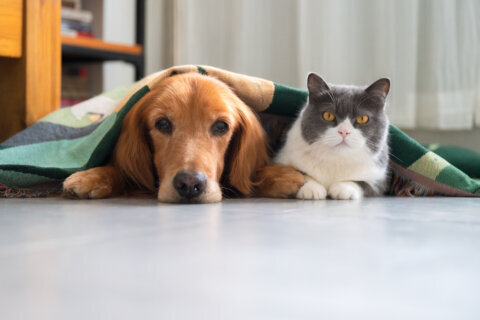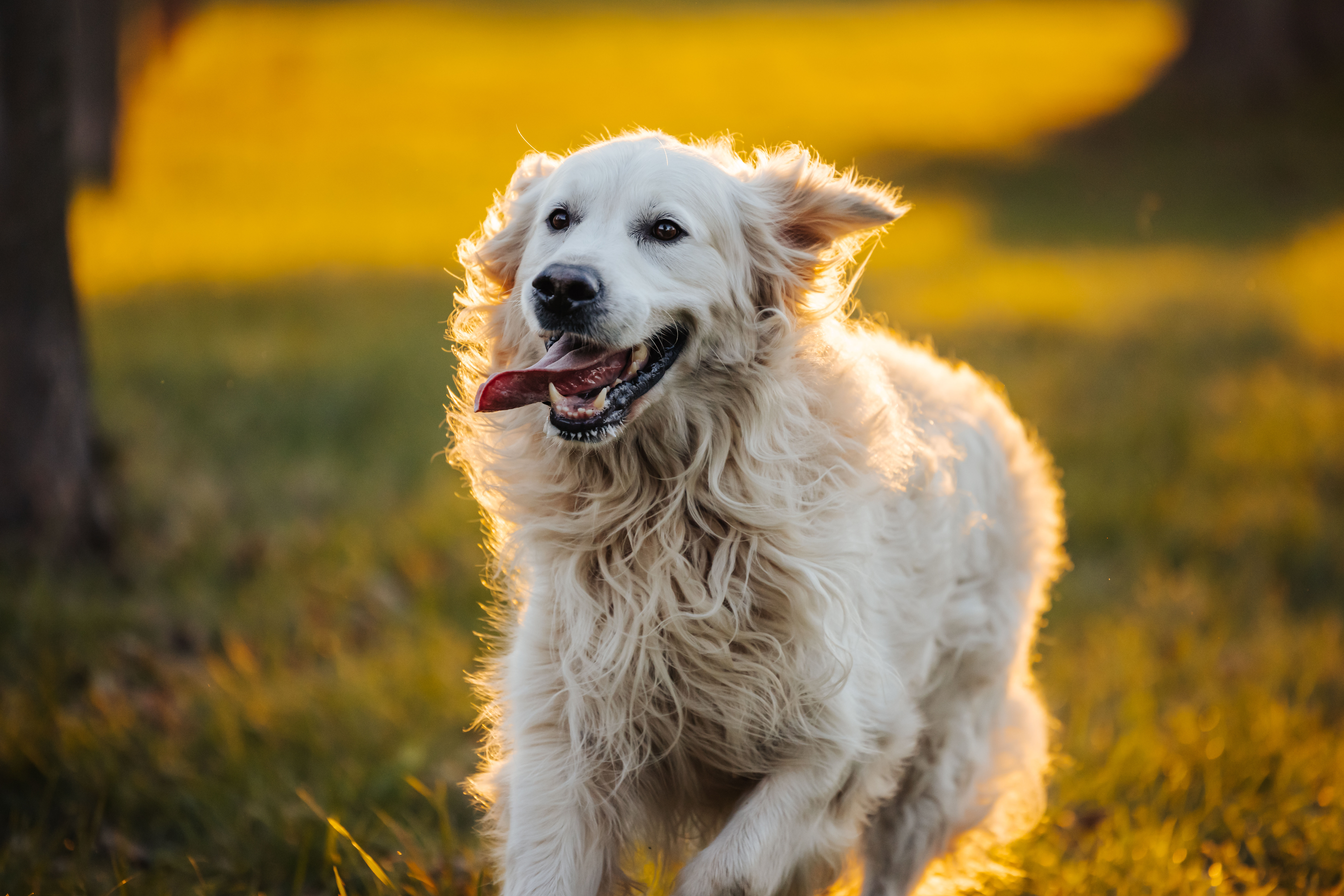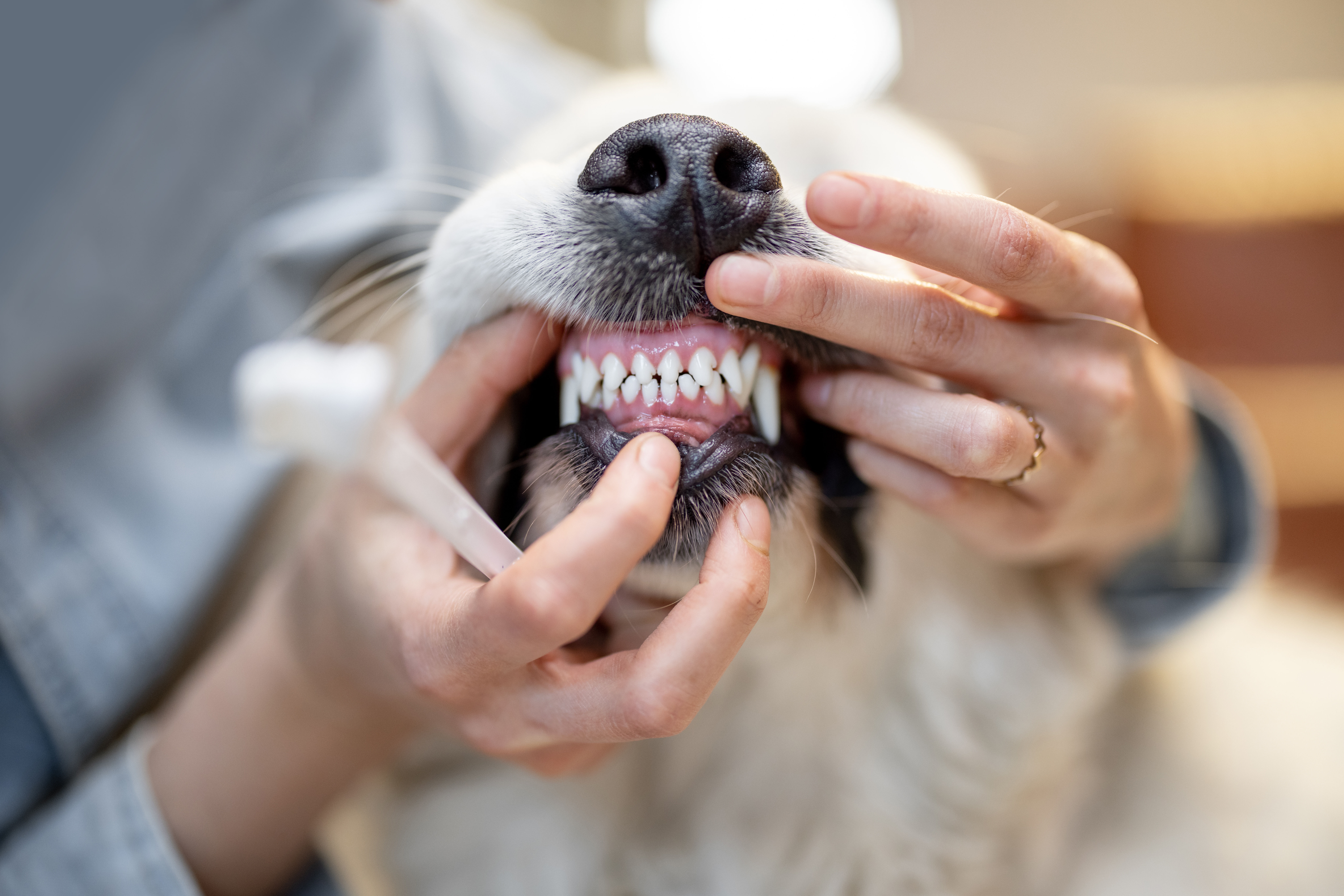This content is sponsored by Rocky Gorge Animal Hospital.
Valentine’s Day should only be about you and your pet spending the day doing your favorite things together – treats, fetch, walks, and lots of cuddles. However, Valentine’s Day does come with some potential dangers to our furry partners, other than heartbreak. The most notorious danger to our significant others is chocolate.
We frequently have dogs seen on ER for ingesting chocolate of various types and amounts. There is a chemical in chocolate called theobromine that is toxic to both dogs and cats. There are higher concentrations of theobromine in certain types of chocolate, such as dark, than others. Depending on the dose, chocolate ingestion can cause agitation, vomiting, diarrhea, heart issues, and seizures.
Xylitol, a common sugar substitute, is another toxic substance to dogs. It can cause severe hypoglycemia and liver failure. Macadamia nuts, coffee beans, grapes, and raisins are also potentially toxic.
Even if your pet ate candy other than these examples, it would be good to have them seen by a veterinarian. Other sweets can cause pancreatitis, which is usually mild, but can be fatal. Additionally, candy wrappers, ribbons, decorations, etc, can cause an obstruction in their intestines that could require surgery.
Another Valentine’s favorite is flowers! Unfortunately, my favorite flower is severely renotoxic to cats – lilies. Common lily species are easter lilies, stargazer lilies, tiger lilies, asiatic lilies, and oriental lilies. Even if a cat so much as rubs against one of these lilies, it could potentially be fatal. Symptoms include vomiting, salivation, depression, anorexia, and severe dehydration.
Finally, alcohol consumed the night of, or any human NSAIDs, such as ibuprofen left out the following morning can also be harmful to pets, so please take care to keep these items out of reach!
You, parents are doing the right thing to bring your pets in to the vet as soon as possible, as we often elect to induce vomiting. While inducing vomiting at home is sometimes possible, our hospital procedure is safer and more effective. We recommend bringing your pet in to be seen as soon as possible if you suspect toxic or foreign material ingestion. You may also get a head start by calling poison control at 888-426-4435.
We hope you all have a loving and safe Valentine’s Day and know we are always here if your little loved ones get into trouble.







